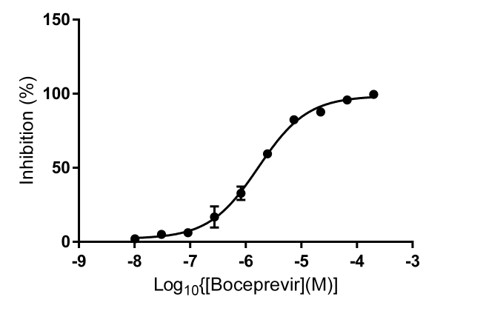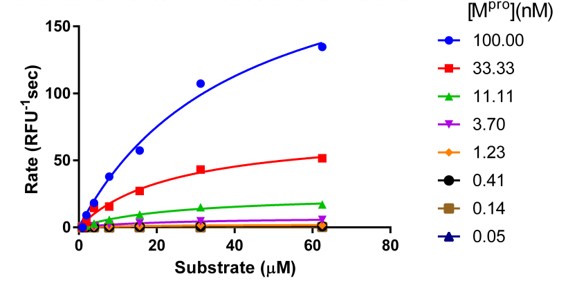- About
-
Solutions
-
Services
- Biosciences
- Chemistry
- Integrated Drug Discovery
- Computer Aided Drug Design
- Hit Identification
- Target Classes and Modalities
- Therapeutic Areas
-
A-Z
- A
- B
- C
- D
- E
- F
- G
- H
- I
- K
- L
- M
- N
- O
- P
- R
- S
- T
- V
- X
-
Services
- Library
- News & Events
- Careers
Anti-infective Drug Discovery
Antibacterial and antivirals research
Anti-infectives is a broad term used to describe any drug that is capable of inhibiting the spread of an infectious organism or by killing the infectious organism outright.
Antibiotics are used to prevent and treat bacterial infections. Resistance occurs when bacteria evolve in response to the use of these medicines. Currently, at least 700,000 people die each year from drug-resistant diseases. The WHO 2019 report on antimicrobial resistance stated that, unless this problem was addressed, drug-resistant bacteria could cause up to 10 million deaths worldwide by 2050, coupled with a financial crisis1. Equally, the devastating impact a virus can have on mankind is all too evident in the current Covid-19 pandemic. Therefore, the discovery and development of new classes of antibacterial and antiviral drugs is increasingly seen as imperative.
Antibiotic Research at Domainex
Domainex scientists have extensive experience in anti-bacterial research. One example of a Domainex client project in this field was our work with Auspherix, an Australian anti-infectives company. Domainex scientists worked diligently with Auspherix in the optimisation of a very novel class of gold (I) phosphine complexes to treat Gram positive and Gram-negative bacterial infections. Our medicinal and synthetic chemists helped design several discreet active series and successfully developed bespoke routes to the gold-based organometallic compounds. Key compounds were scaled up and we were able to deliver multigram quantities in order to support the advanced profiling studies. Our analytical chemistry department was instrumental in establishing methods to track the active gold (I) phosphine complexes in biological matrices, such as blood and plasma. During this project, Domainex proactively contributed to helping Auspherix establish a strong patent portfolio2-6. Click here for the full case study.
Antiviral Research at Domainex
Domainex also has extensive experience in the anti-viral research field and has recently formed a collaboration with Heptares Therapeutics to identify inhibitors of the SARS-Cov-2 main protease (Mpro). As part of this programme, Domainex has established a biochemical assay for Mpro and subsequently screened compounds provided by Heptares (example data is shown in Figures 1 and 2). For more information about our expertise in the protease field please visit our protease page here.

Figure 1: Inhibition of SARS-CoV2 Mpro by Boceprevir
Figure 2: Michaelis-Menten Kinetics of SARS-CoV2 Mpro
If you would like to access the Domainex expertise in anti-bacterial and anti-viral drug research to support your own programme we would be delighted to hear from you.
References
- World Health Organisation. New report calls for urgent action to avert antimicrobial resistance crisis
- Gold (I) phosphine compounds as antibacterial agents, WO 2015/181550
- Gold (I) phosphine compounds as antibacterial agents, WO 2015/181551
- Anti-bacterial compounds, WO 2017/093543
- Alkynyl phosphine gold complexes for treating bacterial infections, WO 2017/093544
- Anti-bacterial compounds based on amino-gold phosphine complexes, WO 2017/093545
Domainex press releases in the anti-bacterial field
Scientists Present Positive Progress in the Development of a New Class of Broad-spectrum Organogold Antibiotics
12th September 2017
Auspherix and Domainex Expand Collaboration to Develop New Drugs that Tackle Antibiotic-Resistant Bacterial Infections
15th September 2015
Auspherix and Domainex Announce Collaboration to Develop New Drugs to Treat Antibiotic-resistant Bacterial Infection
15th October 2014
Case studies
Start your next project with Domainex
Contact one of our experts today